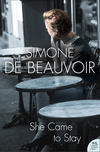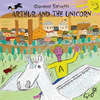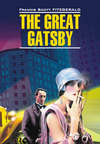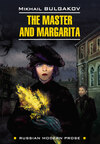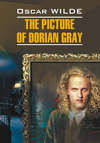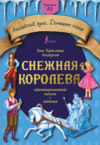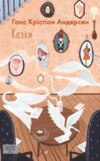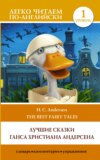Kitabı oku: «Fairy Tales of Hans Christian Andersen», sayfa 17
The clerk, or as the lady called him the field-bird, was placed in a little cage close to the canary, and not far from the parrot. The only human speech which Polly could utter, and which she sometimes chattered forth most comically, was "Now let us be men." All besides was a scream, quite as unintelligible as the warbling of the canary-bird, excepting to the clerk, who being now a bird, could understand his comrades very well.
"I flew beneath green palm-trees, and amidst the blooming almond-trees," sang the canary. "I flew with my brothers and sisters over beautiful flowers, and across the clear, bright sea, which reflected the waving foliage in its glittering depths; and I have seen many gay parrots, who could relate long and delightful stories.
"They were wild birds," answered the parrot, "and totally uneducated. Now let us be men. Why do you not laugh? If the lady and her visitors can laugh at this, surely you can. It is a great failing not to be able to appreciate what is amusing. Now let us be men."
"Do you remember," said the canary, "the pretty maidens who used to dance in the tents that were spread out beneath the sweet blossoms? Do you remember the delicious fruit and the cooling juice from the wild herbs?"
"Oh, yes," said the parrot; "but here I am much better off. I am well fed, and treated politely. I know that I have a clever head; and what more do I want? Let us be men now. You have a soul for poetry. I have deep knowledge and wit. You have genius, but no discretion. You raise your naturally high notes so much, that you get covered over. They never serve me so. Oh, no; I cost them something more than you. I keep them in order with my beak, and fling my wit about me. Now let us be men.
"O my warm, blooming fatherland," sang the canary bird, "I will sing of thy dark-green trees and thy quiet streams, where the bending branches kiss the clear, smooth water. I will sing of the joy of my brothers and sisters, as their shining plumage flits among the dark leaves of the plants which grow wild by the springs."
"Do leave off those dismal strains," said the parrot; "sing something to make us laugh; laughter is the sign of the highest order of intellect. Can a dog or a horse laugh? No, they can cry; but to man alone is the power of laughter given. Ha! ha! ha!" laughed Polly, and repeated his witty saying, "Now let us be men."
"You little gray Danish bird," said the canary, "you also have become a prisoner. It is certainly cold in your forests, but still there is liberty there. Fly out! they have forgotten to close the cage, and the window is open at the top. Fly, fly!"
Instinctively, the clerk obeyed, and left the cage; at the same moment the half-opened door leading into the next room creaked on its hinges, and, stealthily, with green fiery eyes, the cat crept in and chased the lark round the room. The canary-bird fluttered in his cage, and the parrot flapped his wings and cried, "Let us be men;" the poor clerk, in the most deadly terror, flew through the window, over the houses, and through the streets, till at length he was obliged to seek a resting-place. A house opposite to him had a look of home. A window stood open; he flew in, and perched upon the table. It was his own room. "Let us be men now," said he, involuntarily imitating the parrot; and at the same moment he became a clerk again, only that he was sitting on the table. "Heaven preserve us!" said he; "How did I get up here and fall asleep in this way? It was an uneasy dream too that I had. The whole affair appears most absurd."
THE BEST THING THE GOLOSHES DID
Early on the following morning, while the clerk was still in bed, his neighbor, a young divinity student, who lodged on the same storey, knocked at his door, and then walked in. "Lend me your goloshes," said he; "it is so wet in the garden, but the sun is shining brightly. I should like to go out there and smoke my pipe." He put on the goloshes, and was soon in the garden, which contained only one plum-tree and one apple-tree; yet, in a town, even a small garden like this is a great advantage.
The student wandered up and down the path; it was just six o'clock, and he could hear the sound of the post-horn in the street. "Oh, to travel, to travel!" cried he; "there is no greater happiness in the world: it is the height of my ambition. This restless feeling would be stilled, if I could take a journey far away from this country. I should like to see beautiful Switzerland, to travel through Italy, and," – It was well for him that the goloshes acted immediately, otherwise he might have been carried too far for himself as well as for us. In a moment he found himself in Switzerland, closely packed with eight others in the diligence. His head ached, his back was stiff, and the blood had ceased to circulate, so that his feet were swelled and pinched by his boots. He wavered in a condition between sleeping and waking. In his right-hand pocket he had a letter of credit; in his left-hand pocket was his passport; and a few louis d'ors were sewn into a little leather bag which he carried in his breast-pocket. Whenever he dozed, he dreamed that he had lost one or another of these possessions; then he would awake with a start, and the first movements of his hand formed a triangle from his right-hand pocket to his breast, and from his breast to his left-hand pocket, to feel whether they were all safe. Umbrellas, sticks, and hats swung in the net before him, and almost obstructed the prospect, which was really very imposing; and as he glanced at it, his memory recalled the words of one poet at least, who has sung of Switzerland, and whose poems have not yet been printed: —
"How lovely to my wondering eyes
Mont Blanc's fair summits gently rise;
'Tis sweet to breathe the mountain air, —
If you have gold enough to spare."
Grand, dark, and gloomy appeared the landscape around him. The pine-forests looked like little groups of moss on high rocks, whose summits were lost in clouds of mist. Presently it began to snow, and the wind blew keen and cold. "Ah," he sighed, "if I were only on the other side of the Alps now, it would be summer, and I should be able to get money on my letter of credit. The anxiety I feel on this matter prevents me from enjoying myself in Switzerland. Oh, I wish I was on the other side of the Alps."
And there, in a moment, he found himself, far away in the midst of Italy, between Florence and Rome, where the lake Thrasymene glittered in the evening sunlight like a sheet of molten gold between the dark blue mountains. There, where Hannibal defeated Flaminius, the grape vines clung to each other with the friendly grasp of their green tendril fingers; while, by the wayside, lovely half-naked children were watching a herd of coal-black swine under the blossoms of fragrant laurel. Could we rightly describe this picturesque scene, our readers would exclaim, "Delightful Italy!"
But neither the student nor either of his travelling companions felt the least inclination to think of it in this way. Poisonous flies and gnats flew into the coach by thousands. In vain they drove them away with a myrtle branch, the flies stung them notwithstanding. There was not a man in the coach whose face was not swollen and disfigured with the stings. The poor horses looked wretched; the flies settled on their backs in swarms, and they were only relieved when the coachmen got down and drove the creatures off.
As the sun set, an icy coldness filled all nature, not however of long duration. It produced the feeling which we experience when we enter a vault at a funeral, on a summer's day; while the hills and the clouds put on that singular green hue which we often notice in old paintings, and look upon as unnatural until we have ourselves seen nature's coloring in the south. It was a glorious spectacle; but the stomachs of the travellers were empty, their bodies exhausted with fatigue, and all the longings of their heart turned towards a resting-place for the night; but where to find one they knew not. All the eyes were too eagerly seeking for this resting-place, to notice the beauties of nature.
The road passed through a grove of olive-trees; it reminded the student of the willow-trees at home. Here stood a lonely inn, and close by it a number of crippled beggars had placed themselves; the brightest among them looked, to quote the words of Marryat, "like the eldest son of Famine who had just come of age." The others were either blind, or had withered legs, which obliged them to creep about on their hands and knees, or they had shrivelled arms and hands without fingers. It was indeed poverty arrayed in rags. "Eccellenza, miserabili!" they exclaimed, stretching forth their diseased limbs. The hostess received the travellers with bare feet, untidy hair, and a dirty blouse. The doors were fastened together with string; the floors of the rooms were of brick, broken in many places; bats flew about under the roof; and as to the odor within —
"Let us have supper laid in the stable," said one of the travellers; "then we shall know what we are breathing."
The windows were opened to let in a little fresh air, but quicker than air came in the withered arms and the continual whining sounds, "Miserabili, eccellenza." On the walls were inscriptions, half of them against "la bella Italia."
The supper made its appearance at last. It consisted of watery soup, seasoned with pepper and rancid oil. This last delicacy played a principal part in the salad. Musty eggs and roasted cocks'-combs were the best dishes on the table; even the wine had a strange taste, it was certainly a mixture. At night, all the boxes were placed against the doors, and one of the travellers watched while the others slept. The student's turn came to watch. How close the air felt in that room; the heat overpowered him. The gnats were buzzing about and stinging, while the miserabili, outside, moaned in their dreams.
"Travelling would be all very well," said the student of divinity to himself, "if we had no bodies, or if the body could rest while the soul if flying. Wherever I go I feel a want which oppresses my heart, for something better presents itself at the moment; yes, something better, which shall be the best of all; but where is that to be found? In fact, I know in my heart very well what I want. I wish to attain the greatest of all happiness."
No sooner were the words spoken than he was at home. Long white curtains shaded the windows of his room, and in the middle of the floor stood a black coffin, in which he now lay in the still sleep of death; his wish was fulfilled, his body was at rest, and his spirit travelling.
"Esteem no man happy until he is in his grave," were the words of Solon. Here was a strong fresh proof of their truth. Every corpse is a sphinx of immortality. The sphinx in this sarcophagus might unveil its own mystery in the words which the living had himself written two days before —
"Stern death, thy chilling silence waketh dread;
Yet in thy darkest hour there may be light.
Earth's garden reaper! from the grave's cold bed
The soul on Jacob's ladder takes her flight.
Man's greatest sorrows often are a part
Of hidden griefs, concealed from human eyes,
Which press far heavier on the lonely heart
Than now the earth that on his coffin lies."
Two figures were moving about the room; we know them both. One was the fairy named Care, the other the messenger of Fortune. They bent over the dead.
"Look!" said Care; "what happiness have your goloshes brought to mankind?"
"They have at least brought lasting happiness to him who slumbers here," she said.
"Not so," said Care, "he went away of himself, he was not summoned. His mental powers were not strong enough to discern the treasures which he had been destined to discover. I will do him a favor now." And she drew the goloshes from his feet.
The sleep of death was ended, and the recovered man raised himself. Care vanished, and with her the goloshes; doubtless she looked upon them as her own property.
SHE WAS GOOD FOR NOTHING
The mayor stood at the open window. He looked smart, for his shirt-frill, in which he had stuck a breast-pin, and his ruffles, were very fine. He had shaved his chin uncommonly smooth, although he had cut himself slightly, and had stuck a piece of newspaper over the place. "Hark 'ee, youngster!" cried he.
The boy to whom he spoke was no other than the son of a poor washer-woman, who was just going past the house. He stopped, and respectfully took off his cap. The peak of this cap was broken in the middle, so that he could easily roll it up and put it in his pocket. He stood before the mayor in his poor but clean and well-mended clothes, with heavy wooden shoes on his feet, looking as humble as if it had been the king himself.
"You are a good and civil boy," said the mayor. "I suppose your mother is busy washing the clothes down by the river, and you are going to carry that thing to her that you have in your pocket. It is very bad for your mother. How much have you got in it?"
"Only half a quartern," stammered the boy in a frightened voice.
"And she has had just as much this morning already?"
"No, it was yesterday," replied the boy.
"Two halves make a whole," said the mayor. "She's good for nothing. What a sad thing it is with these people. Tell your mother she ought to be ashamed of herself. Don't you become a drunkard, but I expect you will though. Poor child! there, go now."
The boy went on his way with his cap in his hand, while the wind fluttered his golden hair till the locks stood up straight. He turned round the corner of the street into the little lane that led to the river, where his mother stood in the water by her washing bench, beating the linen with a heavy wooden bar. The floodgates at the mill had been drawn up, and as the water rolled rapidly on, the sheets were dragged along by the stream, and nearly overturned the bench, so that the washer-woman was obliged to lean against it to keep it steady. "I have been very nearly carried away," she said; "it is a good thing that you are come, for I want something to strengthen me. It is cold in the water, and I have stood here six hours. Have you brought anything for me?"
The boy drew the bottle from his pocket, and the mother put it to her lips, and drank a little.
"Ah, how much good that does, and how it warms me," she said; "it is as good as a hot meal, and not so dear. Drink a little, my boy; you look quite pale; you are shivering in your thin clothes, and autumn has really come. Oh, how cold the water is! I hope I shall not be ill. But no, I must not be afraid of that. Give me a little more, and you may have a sip too, but only a sip; you must not get used to it, my poor, dear child." She stepped up to the bridge on which the boy stood as she spoke, and came on shore. The water dripped from the straw mat which she had bound round her body, and from her gown. "I work hard and suffer pain with my poor hands," said she, "but I do it willingly, that I may be able to bring you up honestly and truthfully, my dear boy."
At the same moment, a woman, rather older than herself, came towards them. She was a miserable-looking object, lame of one leg, and with a large false curl hanging down over one of her eyes, which was blind. This curl was intended to conceal the blind eye, but it made the defect only more visible. She was a friend of the laundress, and was called, among the neighbors, "Lame Martha, with the curl." "Oh, you poor thing; how you do work, standing there in the water!" she exclaimed. "You really do need something to give you a little warmth, and yet spiteful people cry out about the few drops you take." And then Martha repeated to the laundress, in a very few minutes, all that the mayor had said to her boy, which she had overheard; and she felt very angry that any man could speak, as he had done, of a mother to her own child, about the few drops she had taken; and she was still more angry because, on that very day, the mayor was going to have a dinner-party, at which there would be wine, strong, rich wine, drunk by the bottle. "Many will take more than they ought, but they don't call that drinking! They are all right, you are good for nothing indeed!" cried Martha indignantly.
"And so he spoke to you in that way, did he, my child?" said the washer-woman, and her lips trembled as she spoke. "He says you have a mother who is good for nothing. Well, perhaps he is right, but he should not have said it to my child. How much has happened to me from that house!"
"Yes," said Martha; "I remember you were in service there, and lived in the house when the mayor's parents were alive; how many years ago that is. Bushels of salt have been eaten since then, and people may well be thirsty," and Martha smiled. "The mayor's great dinner-party to-day ought to have been put off, but the news came too late. The footman told me the dinner was already cooked, when a letter came to say that the mayor's younger brother in Copenhagen is dead."
"Dead!" cried the laundress, turning pale as death.
"Yes, certainly," replied Martha; "but why do you take it so much to heart? I suppose you knew him years ago, when you were in service there?"
"Is he dead?" she exclaimed. "Oh, he was such a kind, good-hearted man, there are not many like him," and the tears rolled down her cheeks as she spoke. Then she cried, "Oh, dear me; I feel quite ill: everything is going round me, I cannot bear it. Is the bottle empty?" and she leaned against the plank.
"Dear me, you are ill indeed," said the other woman. "Come, cheer up; perhaps it will pass off. No, indeed, I see you are really ill; the best thing for me to do is to lead you home."
"But my washing yonder?"
"I will take care of that. Come, give me your arm. The boy can stay here and take care of the linen, and I'll come back and finish the washing; it is but a trifle."
The limbs of the laundress shook under her, and she said, "I have stood too long in the cold water, and I have had nothing to eat the whole day since the morning. O kind Heaven, help me to get home; I am in a burning fever. Oh, my poor child," and she burst into tears. And he, poor boy, wept also, as he sat alone by the river, near to and watching the damp linen.
The two women walked very slowly. The laundress slipped and tottered through the lane, and round the corner, into the street where the mayor lived; and just as she reached the front of his house, she sank down upon the pavement. Many persons came round her, and Lame Martha ran into the house for help. The mayor and his guests came to the window.
"Oh, it is the laundress," said he; "she has had a little drop too much. She is good for nothing. It is a sad thing for her pretty little son. I like the boy very well; but the mother is good for nothing."
After a while the laundress recovered herself, and they led her to her poor dwelling, and put her to bed. Kind Martha warmed a mug of beer for her, with butter and sugar – she considered this the best medicine – and then hastened to the river, washed and rinsed, badly enough, to be sure, but she did her best. Then she drew the linen ashore, wet as it was, and laid it in a basket. Before evening, she was sitting in the poor little room with the laundress. The mayor's cook had given her some roasted potatoes and a beautiful piece of fat for the sick woman. Martha and the boy enjoyed these good things very much; but the sick woman could only say that the smell was very nourishing, she thought. By-and-by the boy was put to bed, in the same bed as the one in which his mother lay; but he slept at her feet, covered with an old quilt made of blue and white patchwork. The laundress felt a little better by this time. The warm beer had strengthened her, and the smell of the good food had been pleasant to her.
"Many thanks, you good soul," she said to Martha. "Now the boy is asleep, I will tell you all. He is soon asleep. How gentle and sweet he looks as he lies there with his eyes closed! He does not know how his mother has suffered; and Heaven grant he never may know it. I was in service at the counsellor's, the father of the mayor, and it happened that the youngest of his sons, the student, came home. I was a young wild girl then, but honest; that I can declare in the sight of Heaven. The student was merry and gay, brave and affectionate; every drop of blood in him was good and honorable; a better man never lived on earth. He was the son of the house, and I was only a maid; but he loved me truly and honorably, and he told his mother of it. She was to him as an angel upon earth; she was so wise and loving. He went to travel, and before he started he placed a gold ring on my finger; and as soon as he was out of the house, my mistress sent for me. Gently and earnestly she drew me to her, and spake as if an angel were speaking. She showed me clearly, in spirit and in truth, the difference there was between him and me. 'He is pleased now,' she said, 'with your pretty face; but good looks do not last long. You have not been educated like he has. You are not equals in mind and rank, and therein lies the misfortune. I esteem the poor,' she added. 'In the sight of God, they may occupy a higher place than many of the rich; but here upon earth we must beware of entering upon a false track, lest we are overturned in our plans, like a carriage that travels by a dangerous road. I know a worthy man, an artisan, who wishes to marry you. I mean Eric, the glovemaker. He is a widower, without children, and in a good position. Will you think it over?' Every word she said pierced my heart like a knife; but I knew she was right, and the thought pressed heavily upon me. I kissed her hand, and wept bitter tears, and I wept still more when I went to my room, and threw myself on the bed. I passed through a dreadful night; God knows what I suffered, and how I struggled. The following Sunday I went to the house of God to pray for light to direct my path. It seemed like a providence that as I stepped out of church Eric came towards me; and then there remained not a doubt in my mind. We were suited to each other in rank and circumstances. He was, even then, a man of good means. I went up to him, and took his hand, and said, 'Do you still feel the same for me?' 'Yes; ever and always,' said he. 'Will you, then, marry a maiden who honors and esteems you, although she cannot offer you her love? but that may come.' 'Yes, it will come,' said he; and we joined our hands together, and I went home to my mistress. The gold ring which her son had given me I wore next to my heart. I could not place it on my finger during the daytime, but only in the evening, when I went to bed. I kissed the ring till my lips almost bled, and then I gave it to my mistress, and told her that the banns were to be put up for me and the glovemaker the following week. Then my mistress threw her arms round me, and kissed me. She did not say that I was 'good for nothing;' very likely I was better then than I am now; but the misfortunes of this world, were unknown to me then. At Michaelmas we were married, and for the first year everything went well with us. We had a journeyman and an apprentice, and you were our servant, Martha."
"Ah, yes, and you were a dear, good mistress," said Martha, "I shall never forget how kind you and your husband were to me."
"Yes, those were happy years when you were with us, although we had no children at first. The student I never met again. Yet I saw him once, although he did not see me. He came to his mother's funeral. I saw him, looking pale as death, and deeply troubled, standing at her grave; for she was his mother. Sometime after, when his father died, he was in foreign lands, and did not come home. I know that he never married, I believe he became a lawyer. He had forgotten me, and even had we met he would not have known me, for I have lost all my good looks, and perhaps that is all for the best." And then she spoke of the dark days of trial, when misfortune had fallen upon them.
"We had five hundred dollars," she said, "and there was a house in the street to be sold for two hundred, so we thought it would be worth our while to pull it down and build a new one in its place; so it was bought. The builder and carpenter made an estimate that the new house would cost ten hundred and twenty dollars to build. Eric had credit, so he borrowed the money in the chief town. But the captain, who was bringing it to him, was shipwrecked, and the money lost. Just about this time, my dear sweet boy, who lies sleeping there, was born, and my husband was attacked with a severe lingering illness. For three quarters of a year I was obliged to dress and undress him. We were backward in our payments, we borrowed more money, and all that we had was lost and sold, and then my husband died. Since then I have worked, toiled, and striven for the sake of the child. I have scrubbed and washed both coarse and fine linen, but I have not been able to make myself better off; and it was God's will. In His own time He will take me to Himself, but I know He will never forsake my boy." Then she fell asleep. In the morning she felt much refreshed, and strong enough, as she thought, to go on with her work. But as soon as she stepped into the cold water, a sudden faintness seized her; she clutched at the air convulsively with her hand, took one step forward, and fell. Her head rested on dry land, but her feet were in the water; her wooden shoes, which were only tied on by a wisp of straw, were carried away by the stream, and thus she was found by Martha when she came to bring her some coffee.
In the meantime a messenger had been sent to her house by the mayor, to say that she must come to him immediately, as he had something to tell her. It was too late; a surgeon had been sent for to open a vein in her arm, but the poor woman was dead.
"She has drunk herself to death," said the cruel mayor. In the letter, containing the news of his brother's death, it was stated that he had left in his will a legacy of six hundred dollars to the glovemaker's widow, who had been his mother's maid, to be paid with discretion, in large or small sums to the widow or her child.
"There was something between my brother and her, I remember," said the mayor; "it is a good thing that she is out of the way, for now the boy will have the whole. I will place him with honest people to bring him up, that he may become a respectable working man." And the blessing of God rested upon these words. The mayor sent for the boy to come to him, and promised to take care of him, but most cruelly added that it was a good thing that his mother was dead, for "she was good for nothing." They carried her to the churchyard, the churchyard in which the poor were buried. Martha strewed sand on the grave and planted a rose-tree upon it, and the boy stood by her side.
"Oh, my poor mother!" he cried, while the tears rolled down his cheeks. "Is it true what they say, that she was good for nothing?"
"No, indeed, it is not true," replied the old servant, raising her eyes to heaven; "she was worth a great deal; I knew it years ago, and since the last night of her life I am more certain of it than ever. I say she was a good and worthy woman, and God, who is in heaven, knows I am speaking the truth, though the world may say, even now she was good for nothing."

